-
 +29 +1
+29 +1Vasectomies spike during March Madness
An expert offers a theory that explains why more people get vasectomies around NCAA March Madness and answers questions about the procedure.
-
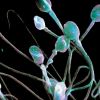 +16 +1
+16 +1What we know so far about how covid-19 affects sperm
Covid-19 infections can lower sperm count and the virus may even bind to receptors on the surface of sperm cells. However, there is no evidence to suggest that the effects differ to those seen after other illnesses that involve fever, such as the flu.
-
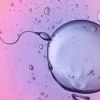 +13 +1
+13 +1COVID infection reduces sperm quality for up to three months, study claims
Men who become infected with coronavirus can suffer reduced sperm quality for up to three months, a new study has suggested. Research carried out on 120 men in Belgium by local academics showed that semen is "not infectious" with COVID-19 and therefore cannot be transmitted through sexual contact.
-
 +14 +1
+14 +1The great sperm heist: ‘They were playing with people’s lives’
Paul was in his 80s when someone called to say she was his daughter, conceived in a fertility clinic with his sperm. The only problem? He’d never donated any...
-
 +19 +1
+19 +1Shanna Swan: 'Most couples may have to use assisted reproduction by 2045'
The professor of environmental medicine explains how chemicals in plastics are causing our fertility to decline – and what we can do about it. Shanna Swan is a professor of environmental medicine and public health at Mount Sinai school of medicine in New York City, studying fertility trends. In 2017 she documented how average sperm counts among western men have more than halved in the past 40 years. Count Down is her new book.
-
 +14 +1
+14 +1Plummeting sperm counts, shrinking penises: toxic chemicals threaten humanity
The end of humankind? It may be coming sooner than we think, thanks to hormone-disrupting chemicals that are decimating fertility at an alarming rate around the globe. A new book called Countdown, by Shanna Swan, an environmental and reproductive epidemiologist at Icahn School of Medicine at Mount Sinai in New York, finds that sperm counts have dropped almost 60% since 1973. Following the trajectory we are on, Swan’s research suggests sperm counts could reach zero by 2045. Zero. Let that sink in.
-
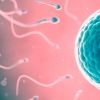 +19 +1
+19 +1Human eggs attract some men's sperm over others — study
New research suggests mate choice continues after sex because human eggs can favor some sperm over others. An analysis of the microscopic dynamics between sperm and egg has revealed a fascinating twist to a phenomenon called female "cryptic choice." According to a new study, eggs use various chemical signals to attract different men's sperm — and not necessarily the sperm of their chosen partners.
-
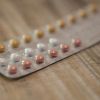 +20 +1
+20 +1Male Birth Control Pill Passes Human Safety Tests
A new male birth control pill passed tests of safety and tolerability when healthy men used it daily for a month, and it produced hormone responses consistent with effective contraception, according to researchers at two institutions testing the drug. The Phase 1 study results was presented Sunday, March 24 at ENDO 2019, the Endocrine Society's annual meeting in New Orleans, La.
-
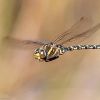 +15 +1
+15 +1Female dragonflies fake their own deaths to avoid males harassing them for sex
In order to avoid males of the species bothering them for sex, female dragonflies fake their own deaths, falling from the sky and lying motionless on the ground until the suitor goes away. A study by Rassim Khelifa, a zoologist from the University of Zurich is the first time scientists have seen odonates feign death as a tactic to avoid mating, and a rare instance of animals faking their own deaths for this purpose. Odonates is the order of carnivorous insects that includes dragonflies and damselflies.
-
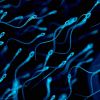 +21 +1
+21 +1Female human body blocks weak sperm, scientists find
For millions of sperm it is the end of the road. Scientists have found evidence that the female reproductive tract is shaped in such a way that stops poor swimmers from reaching their goal. Researchers used small-scale models and computer simulations to show that pinch points that behave like gates along the sperm’s arduous path from cervix to egg allow only the fastest ones through. Tests with sperm from men and bulls revealed that the strongest swimmers were most likely to make it through the tight spots, known as “strictures”, while weaker ones were caught in oncoming currents that propelled them backwards when they got too close.
-
 +16 +1
+16 +1And Now, A Timely Reminder That Jared Kushner Is A Goddamn Moron
Also a mansplaining doucherocket! By Evan Hurst.
-
 +23 +1
+23 +1Inside the top-secret abortion underground
Code names, top-secret training, and a movement of women determined to avoid the medical establishment. By Nina Liss-Schultz.
-
 +17 +1
+17 +1‘Please, I am out of options’: inside the murky world of DIY abortions
As Donald Trump promises new restrictions on abortion, emails reveal the desperation of women who have no place to go to end unwanted pregnancies. By Molly Redden.
-
 +39 +1
+39 +1When Pseudosex Is Better Than the Real Thing
What we can learn about evolution from species who thrive without sexual reproduction. By Kat McGowan.
-
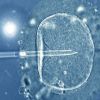 +32 +1
+32 +1First 'three person baby' born using new method
The world's first baby has been born using a new "three person" fertility technique, New Scientist reveals. The five-month-old boy has the usual DNA from his mum and dad, plus a tiny bit of genetic code from a donor. US doctors took the unprecedented step to ensure the baby boy would be free of a genetic condition that his Jordanian mother carries in her genes. Experts say the move heralds a new era in medicine and could help other families with rare genetic conditions.
-
 +8 +1
+8 +1Bioethicist: The climate crisis calls for fewer children
Earlier this summer, I found myself in the middle of a lively debate because of my work on climate change and the ethics of having children. NPR correspondent Jennifer Ludden profiled some of my work in procreative ethics with an article entitled, “Should we be having kids in the age of climate change?,” which summarized my published views that we ought to consider adopting a “small family ethic” and even pursuing fertility reduction efforts in response to the threat from climate change.
-
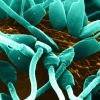 +19 +1
+19 +1Lab-grown sperm makes healthy offspring
Sperm have been made in the laboratory and used to father healthy baby mice in a move that could lead to infertility treatments. By James Gallagher.
-
 +9 +1
+9 +1The Phallus in the Age of Mechanical Reproduction
And How to File the Phallacy of the “Privileged” Avant-guard(e)
-
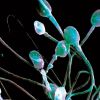 +19 +1
+19 +1Semen has controlling power over female genes and behaviour
Seminal fluid alters gene expression in females, including humans. It can even alter behaviour in fruit flies, but does it do the same in women?
-
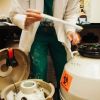 +15 +1
+15 +1Industry’s Growth Leads to Leftover Embryos, and Painful Choices
The subject poses profound questions about the beginning of life, the definition of family and the advances opening new reproductive possibilities.
Submit a link
Start a discussion




















